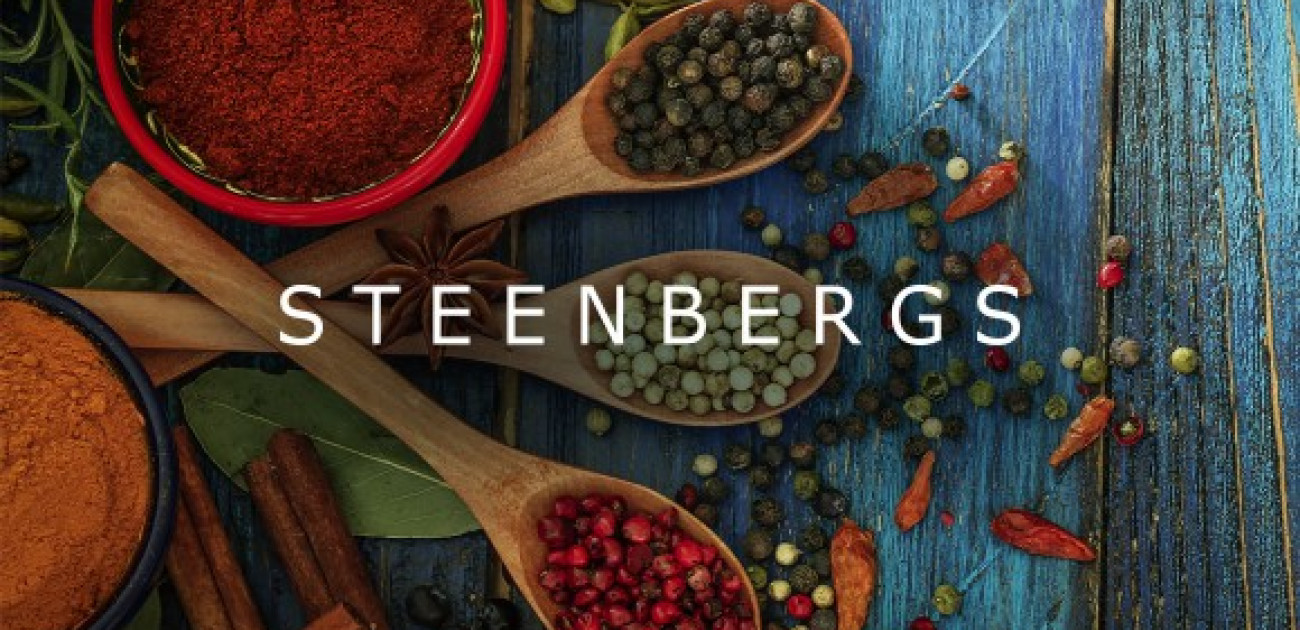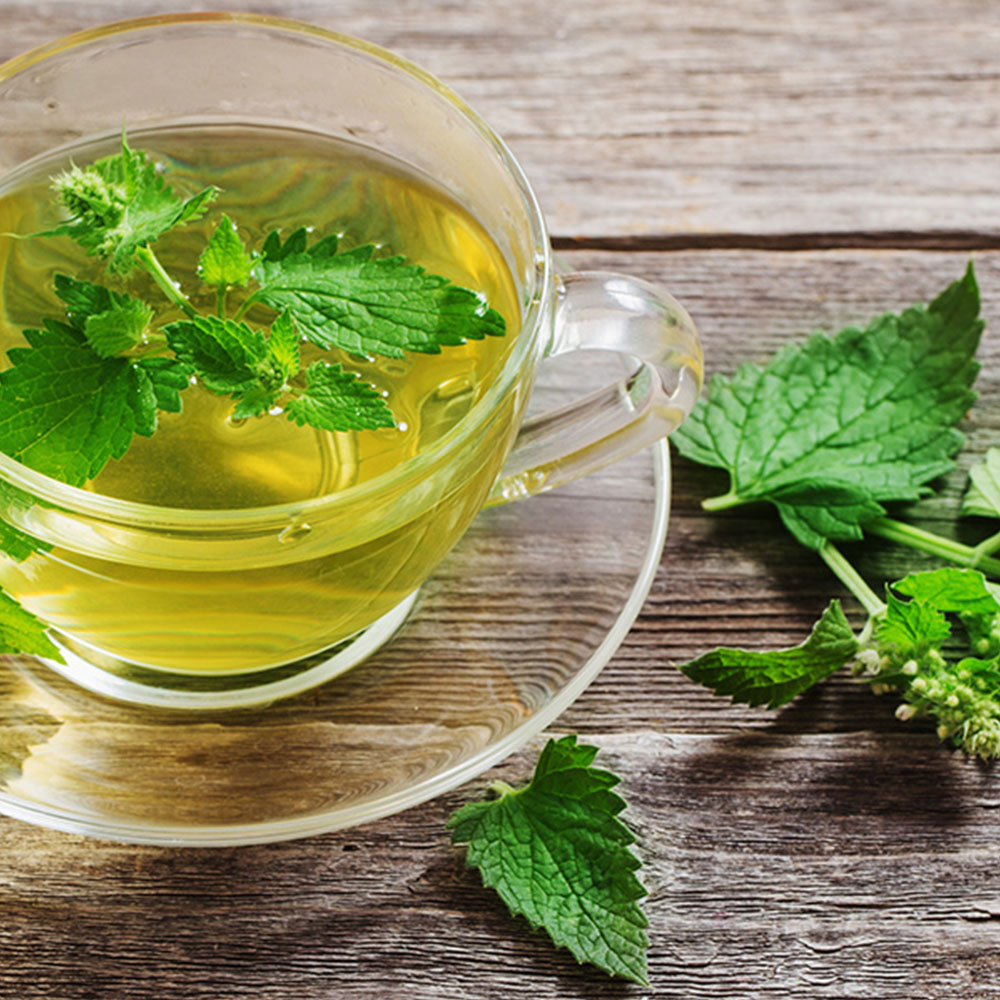16 May 2009
Being fair and responsible

At Steenbergs Organic, we have been committed to being an ethical business since we started in 2003, becoming Fairtrade for tea in 2004 (both as a trader and as a licensee). It is really important to us that we strike a good balance between our business, the environment and people's welfare. As well as organic, being fair and responsible are at the heart of everything we do.
UK's first Fairtrade spices
From the beginning, we have worked closely with our suppliers in the developing world to build fair trading relationships based on long term arrangements and fair, stable prices. In parallel to this, we worked with The Fairtrade Foundation in the UK and FLO-Cert GmbH in Germany to develop standards for Fairtrade spices.
In May 2005, FLO-Cert GmbH approved the standards for Fairtrade spices, as well as draft standards for Fairtrade herbs. At the same, 3 businesses were approved as the original traders for these new Fairtrade spices – Steenbergs was one of them and the only one from the UK. In mid-2005, Steenbergs launched the first Fairtrade-certified spice products with our organic Fairtrade black pepper, as well as the other Fairtrade organic spices. Even after 4 years, Fairtrade spices, and herbs, are still very definitely in their infancy.
Standards are still being developed and the supply chain improved - initially there was only 1 organic & Fairtrade grower for Fairtrade spices, with 4 general Fairtrade spice producers and 5 Fairtrade vanilla co-operatives. The range of raw materials hasn’t changed, but the number of suppliers, businesses involved and the tonnage available has grown massively.
Steenbergs is working with some of our other organic spice growers to help them through the Fairtrade certification process. We continue to work with the Fairtrade movement to develop standards for new products - for example, chillis and herbs. Steenbergs' range of organic Fairtrade spices now includes organic Fairtrade black pepper, organic Fairtrade cloves, organic Fairtrade ginger, organic Fairtrade turmeric, organic Fairtrade white pepper, organic Fairtrade four colour pepper, organic Fairtrade cardamom seed, organic Fairtrade cinnamon, organic Fairtrade mixed spice, organic Fairtrade nutmeg, organic Fairtrade vanilla and organic Fairtrade cinnamon quills.
At the end of 2006, we launched the Europe's first organic Fairtrade vanilla extract for food producers, with a retail organic Fairtrade vanilla extract launched in mid 2007.
Is an ethical policy really necessary?
A lot of our products come from the developing world, e.g. India, Madagascar and Sri Lanka. These farmers may be small enterprises, but they still operate in highly competitive commodity markets for their spices and teas. Although international trade is good for the global economy, it can be really tough for these small businesses and their people. There is no comparable welfare state to provide many of the benefits we take for granted. And trading terms are made difficult by the UK's relative economic strength compared to India, Madagascar and Sri Lanka; as a result, small changes to prices by us in the UK can be magnified for producers.
Pepper In India, pepper is traditionally grown in smallholdings of 5 hectares. Many growers grow pepper intercropped with coconut, coffee and other spices, so annual production is around 1 tonne of black pepper per family. These small producers face fluctuating pepper prices which have been on a downward trend in recent years - black pepper now is worth less than in 1990. This is a result of pricing pressure, coupled with increased exports from countries like Vietnam, which has grown its share of global trade from 0% to 37% since 1990. Low prices have resulted in lack of investment as growers sell their crop below production cost. In 2005, our internal models estimated the cost of sustainable production for black pepper to be £1,645 when the market price was £1,115 per tonne. Constant pricing pressure is destroying these fragile rural economies, reducing environmental standards, health and education in parts of Kerala and elsewhere.
Tea The tea market may be characterised by big plantations. However, small-scale planters grow around half of the tea in Nilgiri in Southern India, as well as in Sri Lanka and Kenya and are an important feature everywhere. Tea is also dominated by large global brands - PG Tips, Tetley, Typhoo and Lipton - and the top 3 firms hold 60% of the UK market. Further, 90% of the Western tea trade is in the hands of 7 multinationals. Since the late 1970s, tea prices have hardly changed, falling in real terms. Global oversupply of 7.5% of demand, coupled with changes to trade with Russia and Iraq, has resulted in prices in 2006 of approximately £1.00 per kg compared to £0.95 per kg in 1995 in open auction. Only 15% of the retail price actually goes to the plantation with the rest earned in blending, packing and sales & marketing, most of which is done outside of the producer countries.
In spite of the open market prices, many Indian plantations have to sell their tea at below production cost - so where 1kg of tea costs 95p to produce, the UK consumer often pays 65p to buy the same 1kg. Poor economics causes reduced environmental and social welfare standards and, in some cases, plantations in India are just being abandoned. The Ethical Tea Partnership is a good step towards improving welfare on international tea estates, but the policing of workers' rights remains unenforceable in many areas nor does it seek to address the economic inbalances. However, Fairtrade has a real, day-to-day positive impact (at a grassroots level) on the lives of tea workers at estates like the Stockholm Tea Estate and tea pickers like Sivapackiam in Sri Lanka.
Can we do anything to help?
We think that our suppliers should make enough money from growing organic spices and tea to be able to improve their standards of living, as well as those of their workers and their families. It's about being responsible in the way Steenbergs Organic sources its products. We look for suppliers that are organic and provide
· A safe & clean working environment
· A living wage to farmers and a minimum wage to workers
· Dignified housing (including potable water and access to energy)
· Basic rights for worker protection
· Access to medical care for workers & their families
· Access to primary and secondary education
Steenbergs Organic enters into long-term relationships with its suppliers, paying them (in advance) a fair price for their organic pepper, organic tea or other organic spices - at prices determined by the grower itself -and wherever possible these are organic Fairtrade black pepper, organic Fairtrade teas and organic Fairtrade spices.
What’s Fairtrade?
Fairtrade is an independent system of standards mainly targeting cash crops. Participating farmers get a fair price for their crops in return for meeting basic social welfare and environmental standards. Over 5 million farmers, workers and their families now benefit from Fairtrade.
When you pay that little bit extra for a Fairtrade product, that premium goes back to farmers and growers. They are guaranteed a stable price and one that is above the cost of production. This price allows farmers to earn a living wage, to plan for the future and to invest in sustainable business development.
For example, the price for organic teas is approximately £1.60 per kg and with the Fairtrade premium is £1.96 per kg. If a farmer doesn't sell Fairtrade, he will receive the price in the market - currently £1.00 per kg.
During the last 10 years, the lowest price was 80p per kg. In addition with Fairtrade teas, a proportion goes directly to the community to spend as they see fit. Steenbergs Organic is mainly focused on higher grade gourmet teas, so pays prices significantly higher than these quoted prices, which are mainly for CTC and Fannings, ie tea-bag grade teas.
Isn’t ethical and fair trading bad for competitiveness?
Ethical trading and Fairtrade is not without its critics. Critics believe that guaranteed prices cause global oversupply in commodities and that a focus on small producers will result in a lack of competitiveness. But
· The ethical trade market is insignificantly small.
· Fairtrade is 0.7% of the 148,000MT British tea market and 0.1% of the global market.
· Demand for ethical and Fairtrade products is consumer-led.
· If consumers don't want to pay a little bit extra for an ethical product, these products would neither be made nor bought.
· In Europe, we have basic standards of social welfare, education, workers' rights and a minimum wage. It is difficult to deny similar benefits to the growers and manufacturers of the products we buy.
Give us a good news example?
Greenfield Tea Estate, the source of our Earl Grey and our bagged teas (Peace Tea and Green Tea), is set in the Uva Highlands in Sri Lanka. Greenfield is organic and Fairtrade. It's part of Lanka Organics, which also supplies Steenbergs Organic with organic spices.
Among its many ethical initiatives, Greenfield provides full union recognition, a cow for each family, drinking water within 10m of each house, a staffed medical centre and on-estate schooling up to 18 years old, with teachers provided by the Ministry of Education. Fairtrade premiums from sales of Fairtrade tea are paid to the Social Committee for the 770 people of the Greenfield Tea Estate, which is responsible for receiving and allocating premium money.
Premium money was used recently for its biggest project so far: the re-development of the Estate Social Club. The Estate Social Club is a meeting hall that's used for social events, special interest classes, mother and baby groups, children's clubs, union meetings and other group events. The Fairtrade premium has, also, been invested in lock-up steel lockers, which is the first time families have had moth-proof and damp-proof places for clothes and valuables.
Crime has been almost non-existent on the Estate but there had been a few break-ins in the local village recently which had raised some concern among the workforce. During the day, the whole family is often out of the house and people didn't like the thought of having to lock their homes and keep hold of keys (what if someone comes home early and someone else has the key etc?).
TVs and aerials have also been purchased at the houses of some of the community leaders as residents wanted access to news and Tamil TV broadcasts. The quality of housing on the Greenfield Estate is already higher than neighbouring estates but recently money has gone to help with interior decoration. This is on-going.
Many of these things may appear small but at Greenfield these developments are a source of pride, wonder and excitement. When the co-operative initially took over the estate it was in poor condition, the houses hadn't been looked after in 20 years and people who lived on the estate had their legal entitlement to three days work per week on US$1 a day. Drug and alcohol dependency were rife. These problems have now mostly disappeared and the younger generations are involved in taking responsibility for their own community.
There's still a long way to go but so far the leaps and bounds they've taken in 10 years has made a real difference.




